- Home
- Anne Stuart
Lady Fortune Page 2
Lady Fortune Read online
Page 2
“Far worse,” she said smoothly. “I’ll have a room prepared for him.”
“No high windows,” Sir Richard warned. “And it might be best if he could be locked in tonight.”
“He’s dangerous?” she demanded sharply.
Sir Richard had the grace to look abashed. “Not that I know of. The women all seem to like him well enough, but I doubt Reynald would fancy any half-wit bastards littering his household nine months hence. I mainly want to keep him away from me.”
“He favors men as well as women?” she inquired in a dulcet tone.
Sir Richard’s high color turned darker still. “No! And if he did I would hardly be the sort . . . I mean . . .” Words failed him, and he blustered a moment longer until Julianna took pity on him. It was ever her weakness—much as she wanted to be a modern Boadicea, a warrior queen, she was too easily moved to guilt and pity.
“I understand, Sir Richard. The man is annoying. We will see him safely settled in one of the smaller bedchambers. The door can be locked, and there’s no way he can harm himself or anyone else.”
“Many thanks, milady.” Sir Richard wiped a handkerchief across his sweating brow. It was a cool day, with a breeze blowing in the open window, but the man was clearly at his wits’ end.
“And you might wish a few hours to compose yourself as well,” she added. “We weren’t expecting visitors, but I’m certain the kitchens can come up with a feast suitable for such distinguished guests.”
“I’ll dine in my rooms,” he said hastily. “Traveling upsets my digestion. And you can ill afford the time to entertain me if we’re to leave at first light. See to your own affairs, milady. I won’t be kept waiting once it’s time to depart.”
So much for pity, thought Julianna, suppressing the urge to kick him. “I’ll be ready at dawn,” she said sweetly. She turned her back on the window, the peaceful, rolling hillside that had been her solace and her pleasure for so many years. Turned her back on it with all the resolution she could muster. She had learned that weeping and bemoaning the fates did no good at all.
She had learned efficiency, first from her mother, then from her serving woman, Agnes, a wise, maternal soul who had been at her side since she arrived at Moncrieff. Agnes, with a husband, six children, and a new one in her belly. Agnes, who must be left behind, a harder grief than all else combined.
In truth, there was no one she could or would bring with her. She would make do on her own until they arrived at Fortham Castle. With a madman for company.
She moved through her duties with her usual calm, instructing her serving women to pack what would fit in two small trunks. She had never had much use for finery, immured in a castle with only a disinterested husband to please, and her gowns were serviceable and not much more. She had no jewelry, no wealth to transport. Everything had belonged to her husband and to his sons and their wives. It wouldn’t take long to make her ready for a journey of less than three days. Unless the madman chose to strangle her before they arrived.
She slept poorly in the narrow bed she had seldom shared with her husband, and when she arose in the darkness before first light she stared down at it, feeling oddly detached. It had been her place of comfort and rest when she was blessedly alone. It had been her place of pain and humiliation and misery when her husband had come to her.
But Victor was dead. And she was useless as a wife, with no lands and no possibility of children. With any luck she would never have to endure a man’s touch again.
Agnes was weeping softly as she fixed Julianna’s long, wheat-colored hair into thick, hip-length plaits for the last time. “I’ll come with you, milady,” she sobbed. “We’ll find a way to bring Angus and the children along later . . .”
“No, Agnes. You belong at Moncrieff, and you know it. I doubt Reynald’s wife would be able to survive without your help, and I will no longer be responsible for a household. I’m certain Lady Isabeau will find a young girl who will see to my needs.”
Agnes wasn’t so far gone in sorrow that she couldn’t wrinkle her nose in disapproval. “She’s your lady mother, Lady Julianna,” she chided her. “Why do you always call her by her formal name?”
Julianna wasn’t about to waste her last moments arguing with the woman who hadn’t been just her servant, but her dearest friend as well. “Don’t worry about Lady Isabeau. We will be reunited in a few days’ time, and things will work themselves out.”
Agnes sniffed. “And how long has she been no more than a few days’ ride from you, and you’ve made no effort to see her?”
“She’s made no effort to see me.”
“You don’t answer her letters, lass! You return her gifts—”
“Don’t let us spend our last few minutes quarreling,” Julianna begged. “You’ve been a better mother to me than she ever was. I’ll be polite to her. I’ll show her the deference due her. I can promise no more than that.”
Agnes shook her head. “You’re a hard lass for one with such a sweet soul,” she said. “But I’m counting on the goodness of your heart to strip away the anger. Your lady mother had no choice in this world. Few women do.” Julianna ignored her words, embracing her stout, pregnant body. “I don’t know who I’ll miss more, you or the children.”
“The children will miss you terribly,” Agnes said, thankfully distracted from her lecture on daughterly duty. “They love you dearly, as much as you love them. You need children of your own, lass . . .”
It had gone from bad to worse. “Enough!” Julianna cried. “I’m close enough to tears as it is. It’s God’s will that I’ll have no children, and all the prayers and hopes have made no difference. At least I can love other women’s children.”
Agnes shook her head. “You’re young yet, lass. Still a child yourself. You’ll learn that life is far from certain.”
“I know one thing,” Julianna said calmly. “I will never bear a child. I will never willingly lie with a man again, and I will never forgive my mother for abandoning me.” The harshness of her own voice surprised her, and she pulled out of Agnes’s comforting embrace, expecting reproaches.
But Agnes’s broad face was wreathed in a wry smile, despite the tears in her eyes. “Life is full of surprises, my lady,” she said. “And I will pray every day that all your surprises are blessed ones.”
Julianna didn’t bother to argue. The first surprise of her new life was the presence of a mad fool, threatening to drive her crazy.
Things were not looking up.
NICHOLAS STRANGEFELLOW had come a long way since his childhood in the north of England. Nicholas of Derwent had been born an only child, beloved of his frail mother and gruff, argumentative father, raised within the comfortable confines of his father’s great house, schooled and trained by the best that money could buy.
Until his father, Baron Derwent, made the dire mistake of annoying King Henry’s father. It was a dangerous thing to get mixed up with the obstreperous sons of Henry the Second, as more than one noble had discovered to his cost. By the time Nicholas was fifteen, everything was gone—his parents, the house, the vast wealth. All that remained was an empty title and his father’s old squire, Bogo, to try to look after him.
The first few years were both the hardest and the best. Nicholas discovered he had a talent for both cutting a man’s purse and charming food from vulnerable ladies. Within a year he was charming much more than food; he was a man wise in the ways of the world, a scamp and a thief, a liar and a rogue.
By the next year, he was a fool.
It was a role entirely suited to his nature. He could say or do anything he pleased without fear of retribution, he straddled all the levels of society, from peasants and criminals to lords and ladies, from traveling players to the King of England himself.
He had taken the worst that life had to offer and survived. He had little doubt he would conti
nue to do so.
Sooner or later he would please Henry enough to claim his reward, though not the long-lost riches of the north that had once belonged to his father. King Henry, like most of his kind, seldom parted with anything of true value unless absolutely forced to do so.
But a small, tumbledown estate, anywhere, would be enough. A house in disrepair, land and people and peace. He wasn’t ready for it yet, but the time was coming closer, and providing King Henry with the sought-after chalice might do the trick. Then, and only then, would Nicholas become Lord Nicholas, Baron Derwent, again.
For now he was content to be a fool. Content to drive sober, stuffy men mad with his prattle, content to drive the ladies to distraction with far more pleasurable ways. He would find the same at Fortham Castle. Men to annoy, women to love.
And the Blessed Chalice of the Martyred Saint Hugelina the Dragon.
He was looking forward to it.
He stretched out in the litter, admiring his tattered, mismatched hose. Bogo, his manservant, keeper, and friend, had outdone himself this morning in providing just the right apparel. The lady of Moncrieff Castle would be appalled when she saw her traveling companion.
He wondered whether she’d be any more of a challenge than the stuffy Sir Richard. She could hardly be less of one. He could charm her, of course—he’d yet to meet a woman he couldn’t charm, no matter her age, appearance, or social background. If suitably inspired he could always while away the interminable journey beneath Lady Julianna’s skirts. She was young, he knew that much. A child bride, a girl widow, a woman without dowry or value. She couldn’t be more than passably pretty—he would have heard if she was a beauty or a troll.
He could hear her approach—Sir Richard was droning on and on in his gruff voice, a grating sound that was his only defense against Nicholas’s determined assault. He shifted in the seat, resisting the impulse to peer out at her.
“What was that?” Her voice, at least, was pleasant, unlike Sir Richard’s. More than pleasant, actually, it was low and rich, with a tinge of voluptuousness that suddenly stirred his senses. He shifted on the bench.
“What?” Sir Richard replied in a fretful voice.
“That clanging noise? Is he kept in chains?” She sounded wary. Obviously Sir Richard had managed to exaggerate Nicholas’s reputation until the poor girl was terrified.
“Bells, my lady. I warned you he was a noisy creature.” He pushed aside the curtains, ignoring Nicholas. “In you go, my lady.”
He sat very still in his corner of the litter, watching her as she was assisted inside, sinking back on the seat with a faint sigh and settling her plain wool skirts around her. She lifted her head and looked at him, directly, with only faint wariness in her brown eyes.
She was exactly what he’d expected, imagined, and yet far different. She had an ordinary-enough face, pleasing in an unremarkable manner. Her nose was small, her mouth wide, her eyes deceptively serene. She wore her dark yellow hair in long plaits that reached to her hips, and the thin veil covering her head was made of gray silk.
The dress was unadorned, of decent quality as befit her status but totally without charm, and it covered her body without flattering it. He suspected she was tall and generously formed, but there was no way to tell—she huddled in the corner, seeming entirely uncomfortable with herself and her body. Or maybe she was just uncomfortable with her companion.
“The widow’s but a quiet lass
Who feels that heart’s deep pain
But this I know, and know full well
Her loss, in truth, her gain.”
“I beg your pardon?” she said in a frosty voice. At least she tried to make it sound frosty. But it had that voluptuous undertone, entirely at odds with her nervous demeanor.
He leaned back and put his legs up on the seat beside her, the tiny silver bells jingling. There were times when the sound of them almost drove him mad, but they were always certain to make everyone around him even madder, and it was a small price to pay. “My condolences on the loss of your husband, my lady,” he said in a dulcet voice.
She was not appeased. The lady of Moncrieff was no fool, a fact that interested him even more than her uneasy body. He’d seldom found wit and beauty in the same package. Lady Julianna was not a beauty, but there was something strangely compelling about her nonetheless. And he was in a rare mood to be compelled.
She nodded her head in brief acknowledgment. She leaned back against the side of the litter, closing her eyes as if to shut him out, and he stared at her in fascination. Her large brown eyes were probably her greatest beauty, and yet when they were closed her face took on a serene expression that was enchanting.
However, he was in no mood to be shut out. “Have you no handmaiden to accompany you, my lady? Surely you’ll need help during the trip? I can offer my poor services—I have a great deal of experience helping ladies out of their gowns, though I must admit I haven’t bothered with helping them back into them.”
Her eyes flew open in instant outrage. He smiled at her sweetly, all seeming innocence.
“I’m certain I shall have no difficulties . . . ,” She floundered for a moment. “I don’t know what to call you,” she said eventually.
Another surprise, that frankness. He wondered if she were as serene, as honest, in bed. “You may call me anything that takes your fancy,” he murmured. “You may call me fool, or lover, or enemy if you must. If you wish to be proper you may call me Strangefellow.”
“Strange fellow?” she echoed.
“Nicholas Strangefellow. Most men call me Master Nicholas.”
“Master Nicholas,” she murmured.
“Yes, Lady Julianna? Shall I entertain you with tales of the court, with poems and songs and stories?”
She sighed. “You can let me rest. I didn’t get much sleep last night, and I am weary.”
“Shall I provide a pillow with my lap, my lady? I’m afraid it might prove a hard one.”
The lewd comment seemed to sail right past her. “Just leave me alone,” she murmured, closing her eyes.
He waited until she was almost asleep, her breathing slow and steady, and then he moved his arm, just enough to fill the small enclosure with the tinkling of bells.
Her eyes flew open in sleepy confusion. “Master Nicholas,” she said in a calm voice, “I have a small, sharp knife with me. If you do not hold still I will remove those blasted bells from your sleeve, and I will then proceed to other, more sensitive parts of your body. I could unman you in the blink of an eye. Do not provoke me.” She closed her eyes again, dismissing him.
He stared at her in astonishment. No woman had ever spoken thusly to him. No other woman had ever been so adept at ignoring him.
He was tempted to start singing, something indecent and annoying, but thought better of it. She was a woman who would make good on her threats.
Not that she’d get very far. If she came near his bells—or his balls—he’d be forced to stop her. And as delicious as that notion was, this was neither the time nor the place.
She was asleep again. He shifted, carefully, so as not to set the tiny silver bells ringing. It appeared as if Lady Julianna of Moncrieff was going to make the time spent at Fortham Castle particularly entertaining.
He wondered how she’d look when she woke up lying naked in his bed after a night of vigorous exercise. Whether she’d still be uneasy with her tall, beautiful body.
And whether she’d put up a defense, or simply fall in love with him like most of them did.
Chapter Two
HE WOKE HER up with his singing. Curse his wretched, misbegotten soul, Julianna thought, keeping her eyes tightly shut as she tried to block him out of her mind. He had a strong, lusty voice, full of character and innuendo, and the song he was singing was so indecent she could only thank heaven she didn’t h
ave to look him in the eyes. Despite the annoying jingle of his delicate silver bells, despite his rich, ribald voice, she could pretend to be asleep and not have to react to his bawdy song.
The song died away just before she was about to discover exactly what the miller’s daughter and the tinker were planning to do. “You’re blushing, my lady,” Nicholas said softly. “Surely a woman of your age and experience knows just what a man and a maid would do beneath a bridge on a hot summer’s day. Surely you’ve done the same.”
She squeezed her eyes shut more tightly, no longer caring whether he believed her to be asleep or not. The litter was no longer moving, her body was a mass of aches, and she needed to relieve herself. But she wasn’t about to look the fool in the eyes if she could help it.
His hand on her face was such a shock that her eyes flew open, and she struck out at him in sudden panic, hitting him. She hadn’t realized how close he had gotten, but the touch of his skin against hers felt like a bolt of lightning.
“How dare you put your hands on me?” she demanded in an icy voice. Except that it didn’t sound icy, it sounded small and panicked.
She immediately straightened her back, tucking her hands in her lap. She wasn’t going to let him frighten her; she wasn’t going to let any man frighten her again. After her father and Victor of Moncrieff, there was no man who could terrify her.
Particularly not the strange man sitting in the litter opposite her, watching her out of his peculiar eyes.
It was said that men became fools because of some peculiarity of form or wit. They were madmen, hunchbacks, simpletons, dwarfs. The man in the carriage didn’t look nearly as strange as some of his fellow jesters. He was presumably quite tall, with long arms and legs taking more than his share of the cramped litter. His clothes were mismatched, colorful, full of holes. His hair was like cornsilk, pale and long and fine, and his face was perhaps too pretty for a grown man, though it was undeniably pleasing.

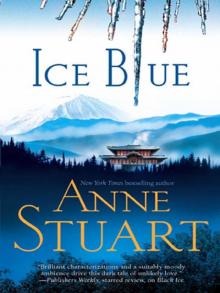 Ice Blue
Ice Blue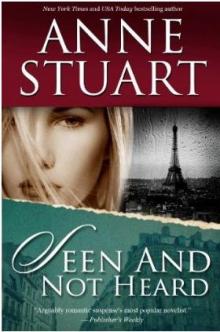 Seen and Not Heard
Seen and Not Heard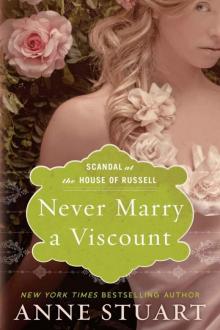 Never Marry a Viscount
Never Marry a Viscount Heartless
Heartless The Devil's Waltz
The Devil's Waltz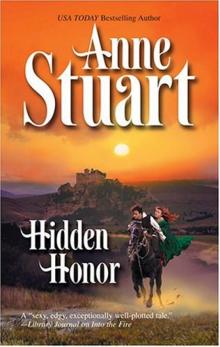 Hidden Honor
Hidden Honor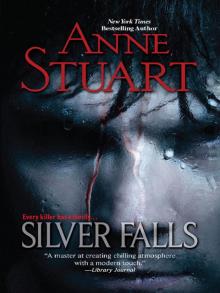 Silver Falls
Silver Falls Fire and Ice
Fire and Ice Nightfall
Nightfall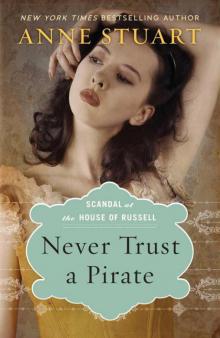 Never Trust a Pirate
Never Trust a Pirate The Soldier and the Baby
The Soldier and the Baby Still Lake
Still Lake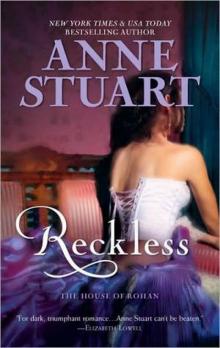 Reckless
Reckless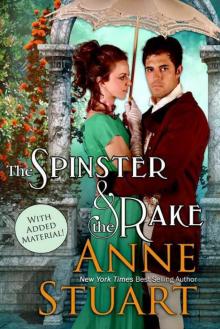 The Spinster and the Rake
The Spinster and the Rake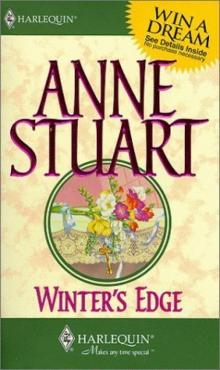 Winter's Edge
Winter's Edge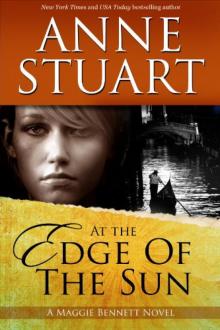 At the Edge of the Sun
At the Edge of the Sun Into the Fire
Into the Fire Night of the Phantom
Night of the Phantom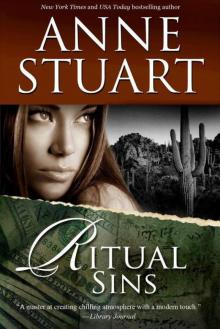 Ritual Sins
Ritual Sins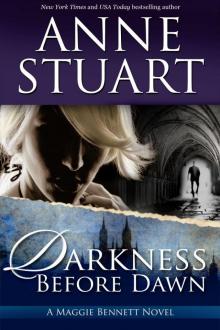 Darkness Before the Dawn
Darkness Before the Dawn Against the Wind
Against the Wind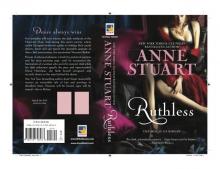 Ruthless
Ruthless The Catspaw Collection
The Catspaw Collection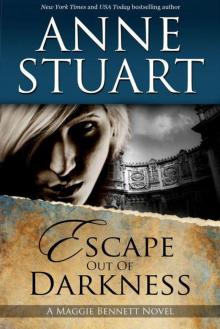 Escape Out of Darkness
Escape Out of Darkness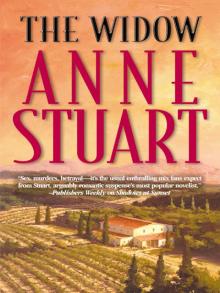 The Widow
The Widow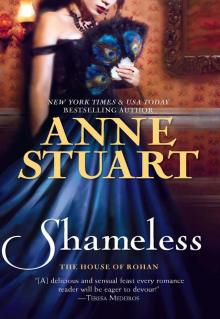 Shameless
Shameless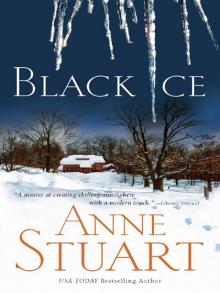 Black Ice
Black Ice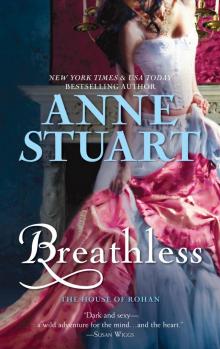 Breathless
Breathless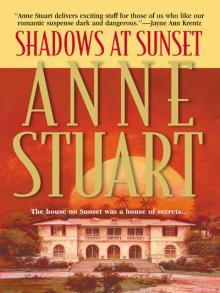 Shadows at Sunset
Shadows at Sunset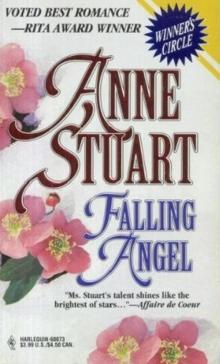 Falling Angel
Falling Angel Housebound
Housebound Cold as Ice
Cold as Ice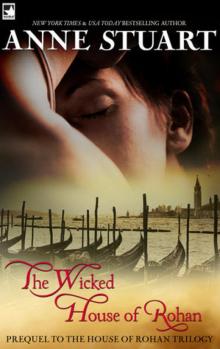 The Wicked House of Rohan
The Wicked House of Rohan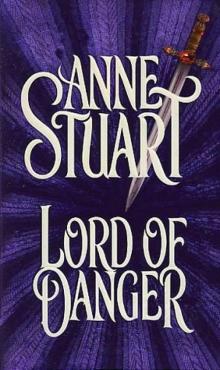 Lord of Danger
Lord of Danger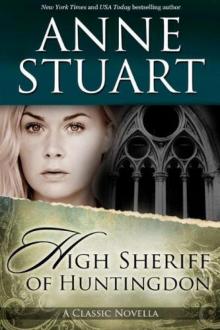 The High Sheriff of Huntingdon
The High Sheriff of Huntingdon Wildfire
Wildfire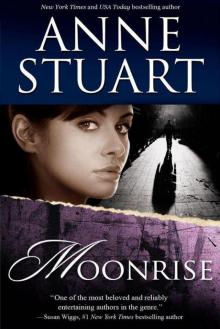 Moonrise
Moonrise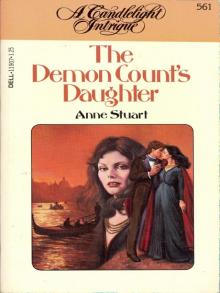 The Demon Count's Daughter
The Demon Count's Daughter Date With a Devil
Date With a Devil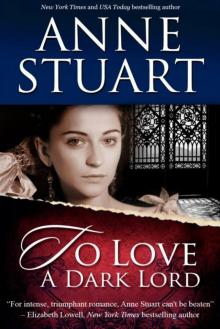 To Love a Dark Lord
To Love a Dark Lord Driven by Fire
Driven by Fire Special Gifts
Special Gifts Ice Storm
Ice Storm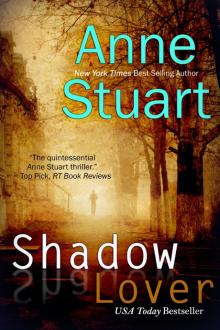 Shadow Lover
Shadow Lover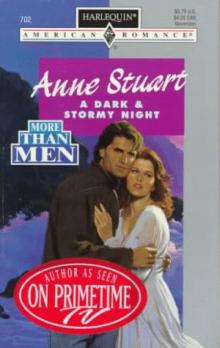 A Dark & Stormy Night
A Dark & Stormy Night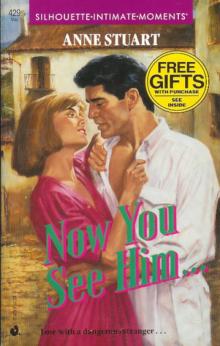 Now You See Him...
Now You See Him...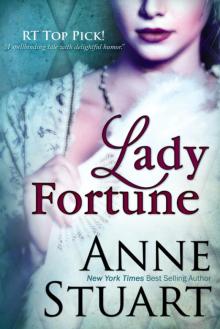 Lady Fortune
Lady Fortune Glass Houses
Glass Houses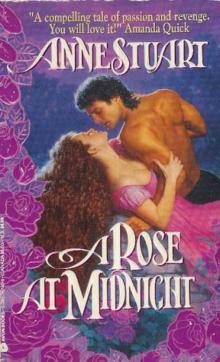 A Rose at Midnight
A Rose at Midnight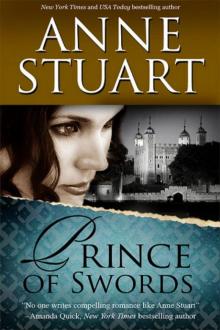 Prince of Swords
Prince of Swords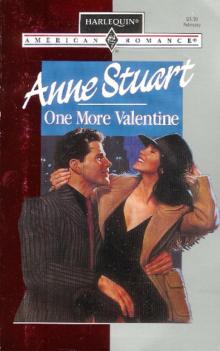 One More Valentine
One More Valentine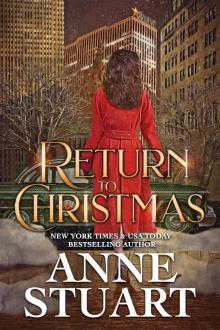 Return to Christmas
Return to Christmas Tangled Lies
Tangled Lies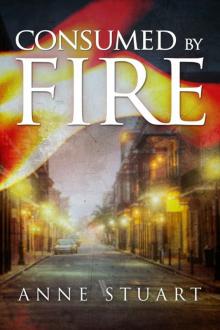 Consumed by Fire
Consumed by Fire The Fall of Maggie Brown
The Fall of Maggie Brown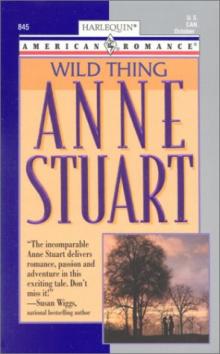 Wild Thing
Wild Thing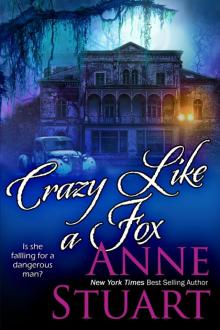 Crazy Like a Fox
Crazy Like a Fox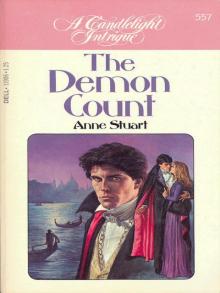 The Demon Count
The Demon Count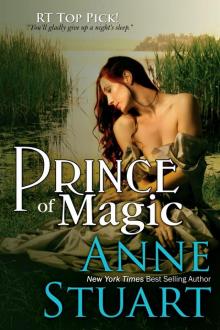 Prince of Magic
Prince of Magic Wildfire (The Fire Series Book 3)
Wildfire (The Fire Series Book 3)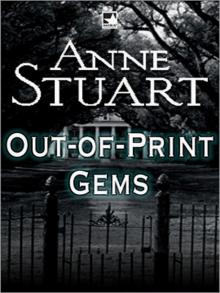 Anne Stuart's Out-of-Print Gems
Anne Stuart's Out-of-Print Gems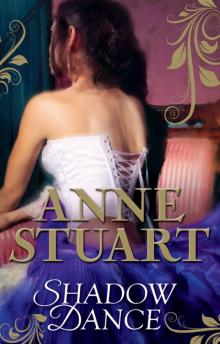 Shadow Dance
Shadow Dance Under an Enchantment: A Novella
Under an Enchantment: A Novella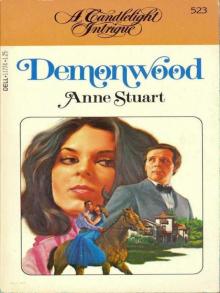 Demonwood
Demonwood Blue Sage (Anne Stuart's Greatest Hits Book 3)
Blue Sage (Anne Stuart's Greatest Hits Book 3)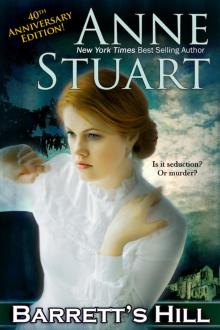 Barrett's Hill
Barrett's Hill Angel's Wings (Anne Stuart's Bad Boys Book 5)
Angel's Wings (Anne Stuart's Bad Boys Book 5)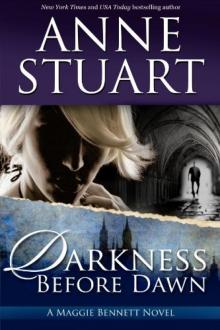 Darkness Before Dawn
Darkness Before Dawn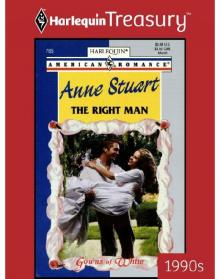 The Right Man
The Right Man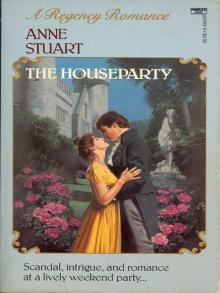 The Houseparty
The Houseparty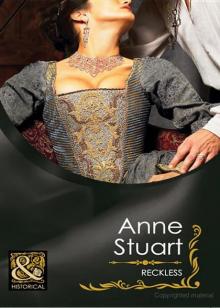 Reckless_Mills & Boon Historical
Reckless_Mills & Boon Historical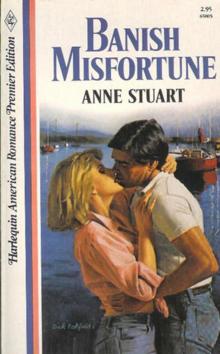 Banish Misfortune
Banish Misfortune Angel's Wings
Angel's Wings Chain of Love
Chain of Love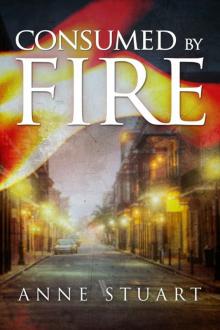 Consumed by Fire (The Fire Series)
Consumed by Fire (The Fire Series)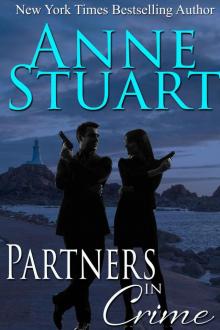 Partners in Crime (Anne Stuart's Bad Boys Book 4)
Partners in Crime (Anne Stuart's Bad Boys Book 4) The Soldier, The Nun and The Baby (Anne Stuart's Greatest Hits Book 2)
The Soldier, The Nun and The Baby (Anne Stuart's Greatest Hits Book 2)